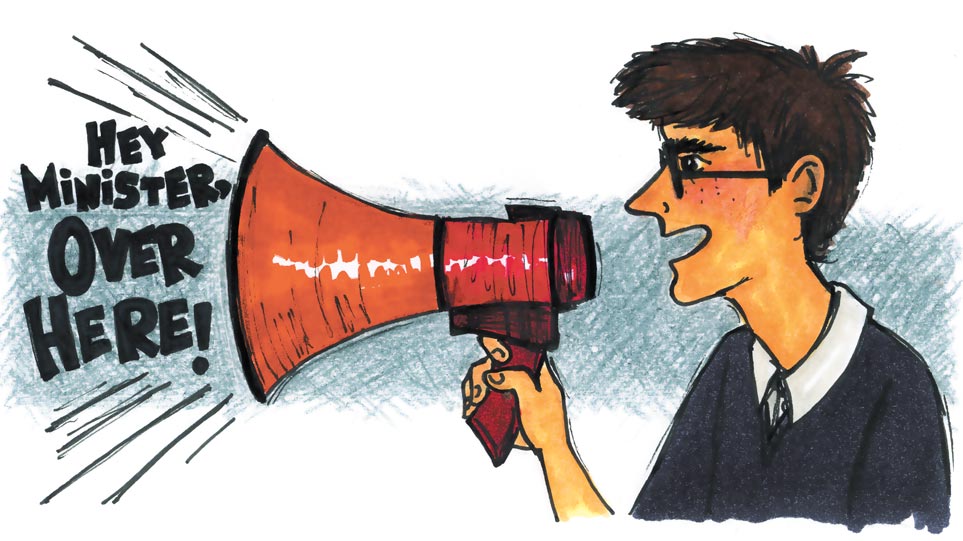
Lobbying has its limitations
Last week, executives from the Students’ Union traveled to Edmonton for a lobbying blitz.
As part of the Council of Alberta University Students (CAUS), they got some face-to-face time with members of the provincial government. While this type of lobbying is important, it has its limitations.
Executives usually have only 15 minutes with a minister. They must judge the current mood of the ministry, predict upcoming budgets and then recommend policies the government has only a slim chance of adopting.
Sometimes students get their way. Former minister of advanced education Dave Hancock adopted open textbooks after lobbying done by CAUS in 2014.
The big concern this year is maintaining Alberta’s tuition cap. Under current provincial policy, universities cannot raise tuition higher than the rate of inflation. Consumer prices rose 2.2 per cent on average last year, so the University of Calgary’s tuition jumped by the same rate.
Alberta Premier Jim Prentice has hinted that his government might scrap the cap to find money in Alberta’s cheap-oil economy. Since the cap is a policy matter, and not legislated, Prentice can make the change when it’s convenient for him.
This puts student lobbyists on the defensive. With the province preparing for budget cuts, there isn’t room to pursue contentious, long-standing issues like the regulation of market modifiers and mandatory non-instructional fees, two policy loopholes universities have exploited to circumvent the cap.
Even during strong economic years, student-to-minister lobbying rarely produces significant policy changes. Students just don’t have the leverage needed to command the government’s attention.
Even if every student voted, a scenario far exceeding our pithy turnout, the electoral system is set up in a way that gives politicians few reasons to listen.
Students don’t command the government’s respect. Read any establishment press and our generation is depicted as spoiled narcissists.
Strikes are difficult to organize and would bring limited pressure. Students access a public service. We don’t provide one.
The best way students can gain leverage is if we win the support of the broader community. If student concerns stay niche, the government won’t have an incentive to listen.
We shouldn’t underestimate the power of spectacle. A student protest in Edmonton on Nov. 18, 2014 led the evening news and drew comments from opposition parties and the minister of advanced education, despite the modest turnout and uneventful afternoon.
The SU also controls MacHall. With a little creativity, they could organize an on-going media stunt to grab the public’s attention.
Before we see progress on student issues, the public needs to notice us. Negotiations won’t work until our problems fill a broader share of the public discourse.
This strategy requires organization and engaged students. We shouldn’t be cynical about what we’re capable of. The SU has demonstrated competent long-term planning on a number of fronts. And the U of C isn’t short on thoughtful students looking for effective ways to address their shared troubles.
Traditional student lobbying is important, but it’s limited unless greater pressure is brought on the provincial government by non-students. The SU should begin planning and organizing as soon as possible to garner support from the public and convince more students to take part.
A politician’s strongest instinct is self preservation. We want the government stressed and eager to appease a public angry about their neglect of post-secondary education the next time they negotiate with student leaders.
Riley Hill, Gauntlet Editorial Board
